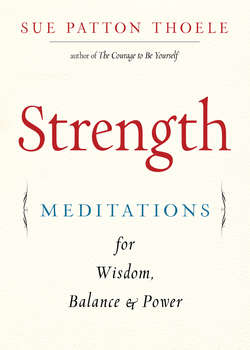Читать книгу Strength - Sue Patton Thoele - Страница 42
На сайте Литреса книга снята с продажи.
UNDERSTANDING YOUR SENSITIVITY QUOTIENT
ОглавлениеYears ago, as I was first reading Dr. Elaine Aron's The Highly Sensitive Person: How to Thrive When the World Overwhelms You, I would have burst into singing “Getting to Know You” from the King and I had I not been on a plane. Instead, I burst into tears.
All my life I'd harbored a secret belief that I was somehow fundamentally flawed. For as long as I could remember, I'd heard or said to myself: “You're too emotional. You're too persnickety about smells... sounds... crowds... criticism. What's wrong with you? Just ignore it like I do. You're too sensitive!” And here was a research psychologist, college professor, and psychotherapist, herself a highly sensitive person, or HSP, telling me I was neither crazy nor a bona fide bitch.
These two sentences from Dr. Aron's book were life changing and a profound relief to me: “Having a sensitive nervous system is normal, a basically neutral trait. You probably inherited it.” (Ah, so . . . that explains a lot about my family.) About 15 to 20 percent of the population falls in this category. However, those of you drawn to books like this are more likely to have HSP tendencies than the population as a whole. Characteristics of a highly sensitive nervous system are sensitivity, naturally, and overarousal from sensory and energetic stimuli of all kinds. What most people can ignore, HSPs are highly disturbed by, especially stimuli over which they have no control.
Since my dad described my largely sleepless infant self as “an eel with insomnia,” I imagine I came in as an HSP and, unless things change dramatically, will go out as one also. But, at least, I now have information that helps me understand myself more completely and, consequently, be a better friend to myself. Knowing about my nervous system sensitivity has helped my husband understand my responses also. Awareness has been good for both of us individually and for our marriage.
